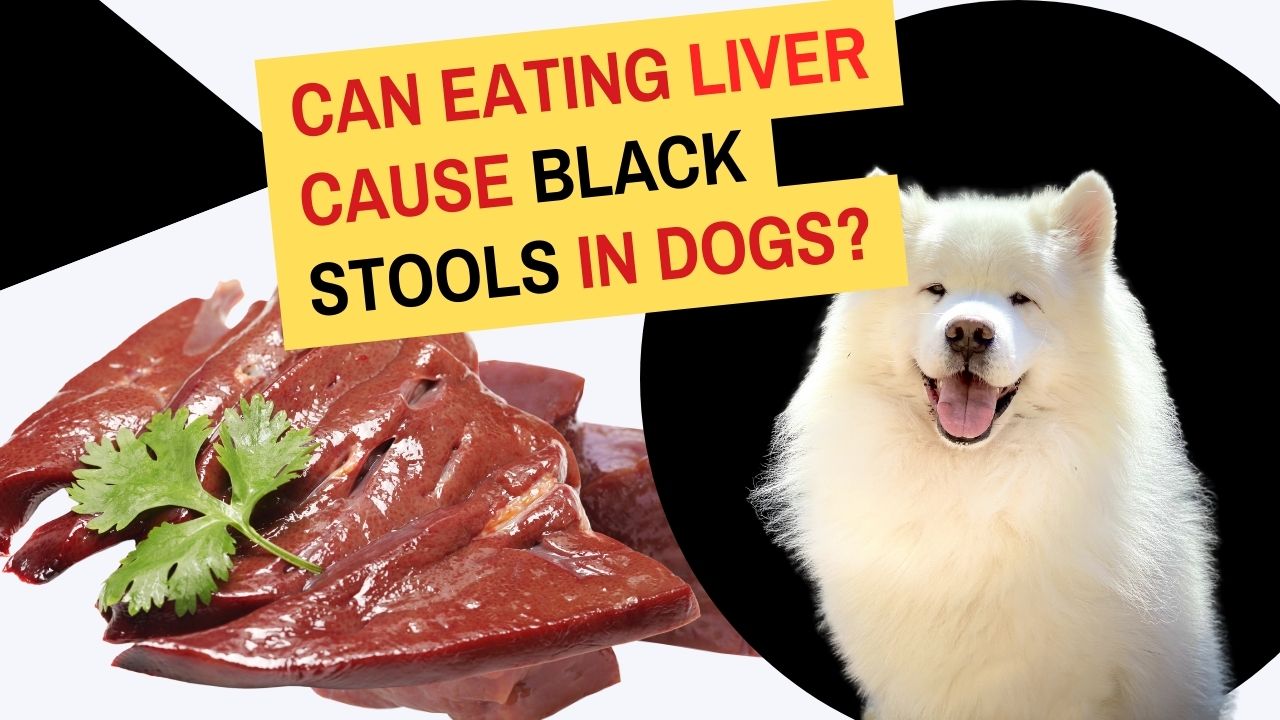As the authors of Canine Journal, we believe it is our obligation to inform you of what is transpiring with your dog. So, here’s the low-down on dog poop of every color.
The majority of slight variations in dog stool color are caused by dietary changes and shouldn’t raise any red flags. However, poop color and consistency can be a sign of serious health issues, so you must take care of your dog’s business.
What can cause black stool in dogs?
Black stools, also known as melena, can be caused by a variety of conditions, including pancreatitis, kidney failure, exposure to toxins, or a foreign body in the digestive system. Cancer, parasites, foreign objects, and bacterial or viral pathogens are a few of the more prevalent causes of black dog poop, according to Dr. Spangler adds.
Find out if eating liver can cause black stools in dogs!

Can eating liver cause dogs to have black stools? Eating liver can be very healthy for your dog because it contains a variety of nutrients like iron, B vitamins, and choline. However, there are some situations where giving your dog liver can result in black stools that might make you wonder whether doing so is safe. Examining the causes of black stools and determining how it affects your dog’s health will help us determine if eating liver can cause black stools in dogs.
Does Eating Liver Cause Black Stools in Dogs?
Although you might not notice it frequently, dogs typically have black stools. Usually, digested blood, which can come from a variety of sources, is what gives the darker color. If your dog has black stools and you’re worried, consult your veterinarian. They’ll probably want to rule out any potential medical issues, like internal bleeding or obstructions in the intestines
FAQ
Can eating liver make dogs poop black?
Very dark or black stools are a sign of a high meat intake, particularly liver and other offal. Greyish, which is typically caused by eating grains and/or processed foods Consult your veterinarian if your pet is light-colored, especially if it is greyish, as this could indicate a liver or pancreatic issue.
Why is my dog’s poop suddenly black?
Black stools, also known as melena, can be caused by a variety of conditions, including pancreatitis, kidney failure, exposure to toxins, or a foreign body in the digestive system. Cancer, parasites, foreign objects, and bacterial or viral pathogens are a few of the more prevalent causes of black dog poop, according to Dr.
Does eating liver change stool color?
Examples of foods that might cause dark stool color include liver, congealed blood, black sticky rice, and mulberries. On the other hand, it might be brought on by taking iron-rich nutritional supplements or certain diarrhea-treating medications.
Does liver turn stools black?
liver issues Liver disease can also result in black, tarry, or spotty stools. This is due to the possibility that it may result in esophageal varices, also known as portal hypertension, or gastrointestinal bleeding. Esophageal varices are bulging veins in the throat and stomach.
